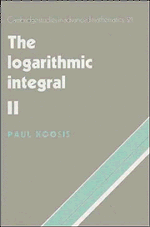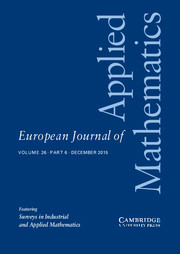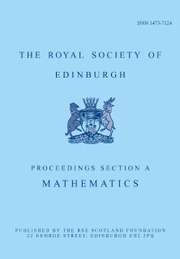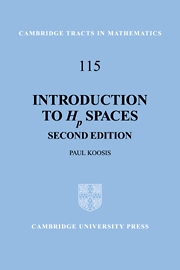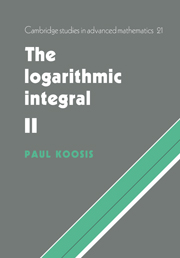The Logarithmic Integral
The theme of this unique work, the logarithmic integral, lies athwart much of twentieth century analysis. It is a thread connecting many apparently separate parts of the subject, and is a natural point at which to begin a serious study of real and complex analysis. Professor Koosis' aim is to show how, from simple ideas, one can build up an investigation that explains and clarifies many different, seemingly unrelated problems; to show, in effect, how mathematics grows. The presentation is straightforward, so this, the first of two volumes, is self-contained, but more importantly, by following the theme, Professor Koosis has produced a work that can be read as a whole. He has brought together here many results, some new and unpublished, making this a key reference for graduate students and researchers.
- Only book on subject
- Author is acknowledged expert in field
- Covers broad area of subject
Reviews & endorsements
"An inviting, enthusiastic, readable, comprehensive introduction to the logarithmic integral and its many roles..." American Mathematics Monthly
Product details
December 1998Paperback
9780521596725
628 pages
230 × 155 × 31 mm
0.834kg
156 b/w illus.
Available
Table of Contents
- Preface
- Introduction
- 1. Jensen's formula
- 2. Szego's theorem
- 3. Entire functions of exponential type
- 4. Quasianalyticity
- 5. The moment problem on the real line
- 6. Weighted approximation on the real line
- 7. How small can the Fourier transform of a rapidly decreasing non-zero function be?
- 8. Persistence of the form dx/(1+x^2)
- Addendum
- Bibliography for volume I
- Index
- Contents of volume II.


